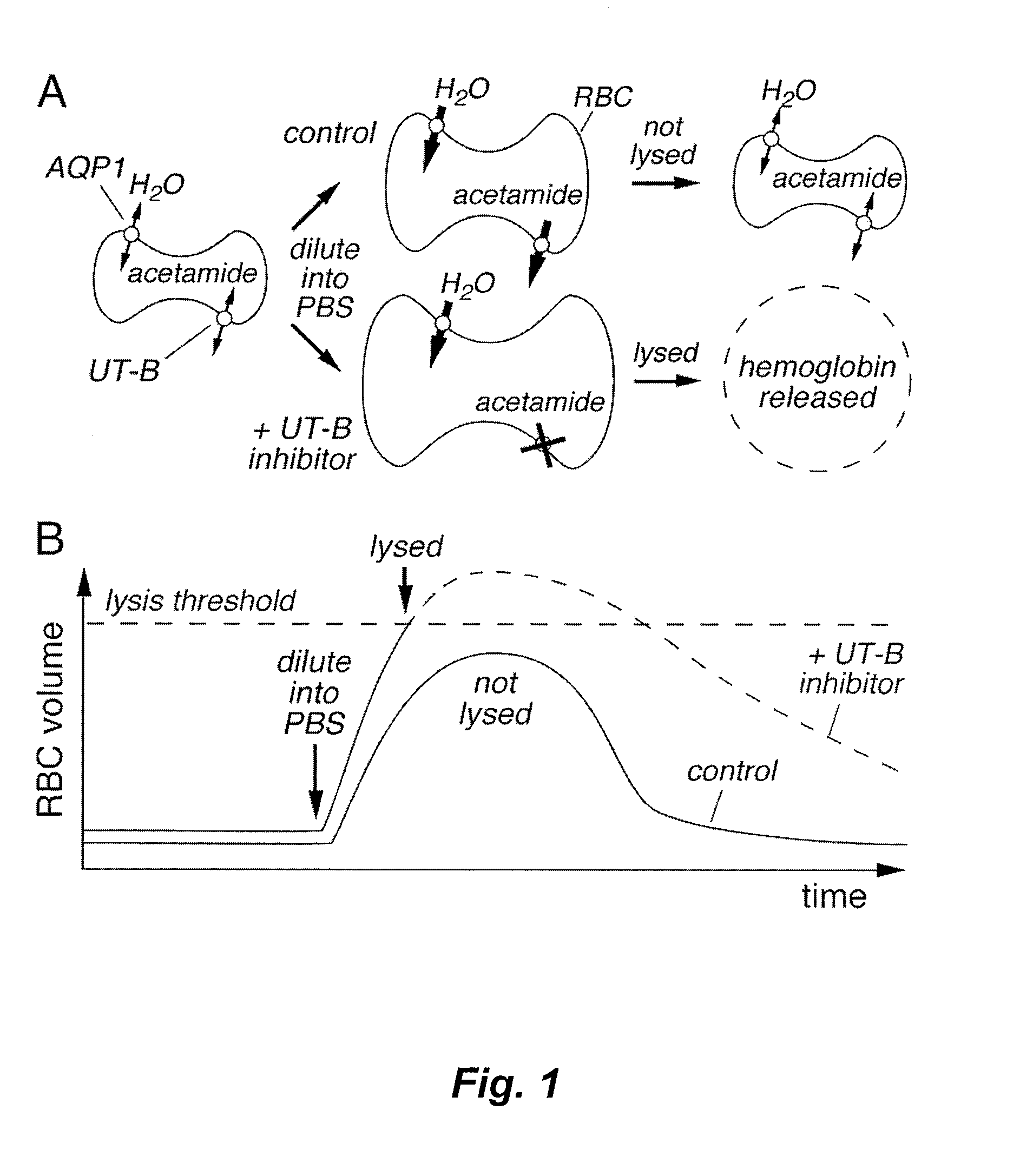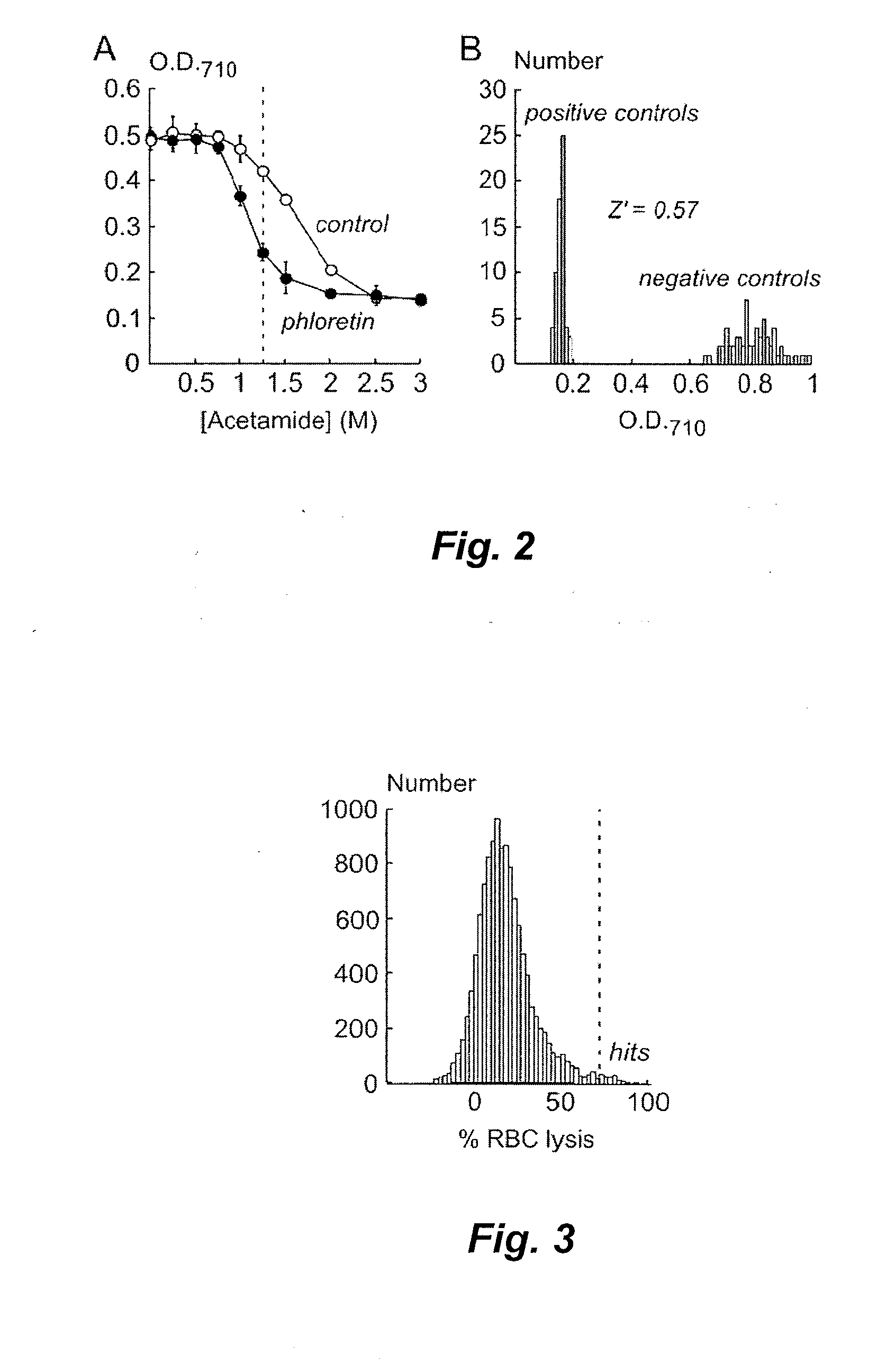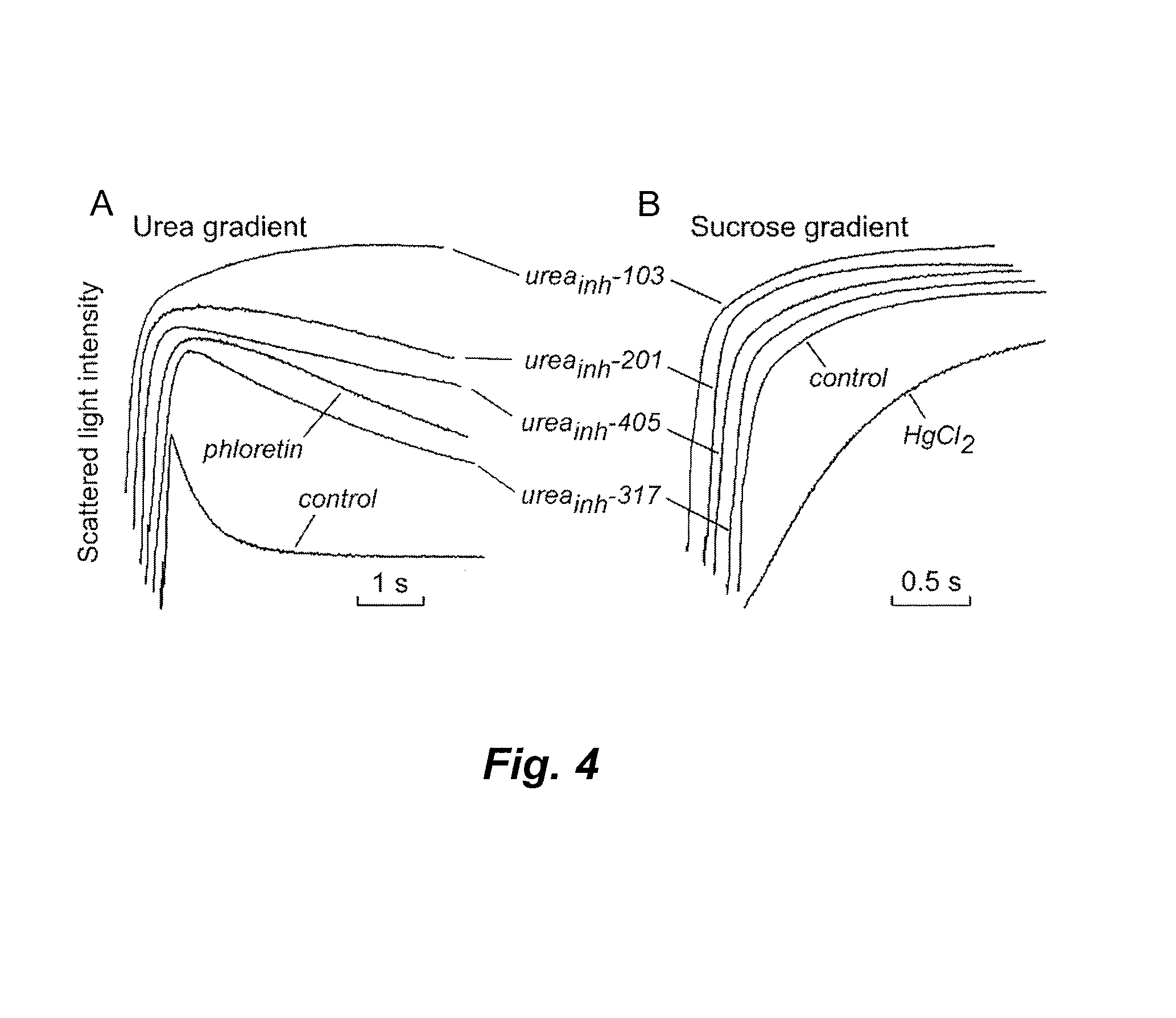Methods for identifying inhibitors of solute transporters
a solute transporter and inhibitor technology, applied in the field of solute transporter inhibitors, can solve the problems of insufficient availability of potent and specific urea transport blockers, and achieve the effects of inhibiting the transport of neutrally charged solutes, inhibiting the transport of water, and inhibiting the transport of urea
- Summary
- Abstract
- Description
- Claims
- Application Information
AI Technical Summary
Problems solved by technology
Method used
Image
Examples
example 1
Red Blood Cell (RBC) Lysis Assay
[0135]An RBC lysis assay was developed in an automated, 96-well format high throughput format and optimized for identification and characterization of small-molecule UT-B inhibitors. Inhibition of UT-B mediated transport of urea by compounds was indicated by increased RBC lysis when urea- or acetamide-loaded RBCs were rapidly diluted into PBS (see FIG. 1). Conditions were optimized to give a robust assay for high-throughput screening that exhibited high sensitivity and a low false-positive rate. Absorbance at 710 nm was measured as a read-out of RBC lysis to minimize interference by test compounds and hemoglobin.
[0136]Screening of compounds for UT-B inhibitory activity in the RBC lysis assay was performed using a BECKMAN COULTER (Fullerton, Calif.) integrated system that included a 3-meter robotic arm, microplate carousel, liquid handling work station with parallel 96-well solution mixing and transfer (BIOMEK FX), plate sealer, and two fluorescence pl...
example 2
High Throughput Screening of Small Molecule Libraries for UT-B Inhibitors
[0140]A primary screening for UT-B inhibitors was performed using a collection of 50,000 diverse, drug-like compounds (>90% with molecular size of 250-500 Da) obtained from a commercial source (CHEMDIV Inc., San Diego, Calif.). 96-well plates containing four compounds per well (each at 2.5 mM) were prepared for screening and then stored frozen in DMSO until use. Plates containing one compound per well (at 10 mM in DMSO) were stored separately and used later to identify and characterize individual active compounds.
[0141]Whole human blood was collected (see Example 1) and then prior to performance of the assay was diluted to a hematocrit of 1% in hyperosmolar PBS containing 1.25 M acetamide and 5 mM glucose (1550 mOsm, measured using freezing point-depression osmometry; Precision Systems, Natick, Mass.). Identical assay results were obtained when washed / centrifuged RBCs were used instead of whole blood. RBC suspe...
example 3
Stopped Flow Light Scattering Confirmatory Assay for Identification of UT-B Inhibitors
[0145]RBC urea and water permeabilities were assayed by stopped-flow light scattering using a Hi-Tech Sf-51 instrument (Wiltshire, UK). For measurement of urea permeability, dilutions of whole blood (human or mouse; see Example 1) in PBS (hematocrit: approximately 0.5%) were incubated with test compounds for 5 min and then subjected to a 250-mM inwardly directed gradient of urea. After an initial osmotic shrinking phase, the kinetics of increasing cell volume caused by urea influx were measured as the time-course of 90° scattered light intensity at 530 nm, with increasing cell volume resulting in reduced scattered light intensity. As a positive control, 0.7 mM phloretin was added to the RBC suspension prior to stopped-flow experiments. Measurements of water permeability were carried out similarly, with sucrose (cell-impermeant) used instead of urea to establish a 250-mM osmotic gradient. As a posit...
PUM
| Property | Measurement | Unit |
|---|---|---|
| temperature | aaaaa | aaaaa |
| temperature | aaaaa | aaaaa |
| temperature | aaaaa | aaaaa |
Abstract
Description
Claims
Application Information
 Login to View More
Login to View More - R&D
- Intellectual Property
- Life Sciences
- Materials
- Tech Scout
- Unparalleled Data Quality
- Higher Quality Content
- 60% Fewer Hallucinations
Browse by: Latest US Patents, China's latest patents, Technical Efficacy Thesaurus, Application Domain, Technology Topic, Popular Technical Reports.
© 2025 PatSnap. All rights reserved.Legal|Privacy policy|Modern Slavery Act Transparency Statement|Sitemap|About US| Contact US: help@patsnap.com



